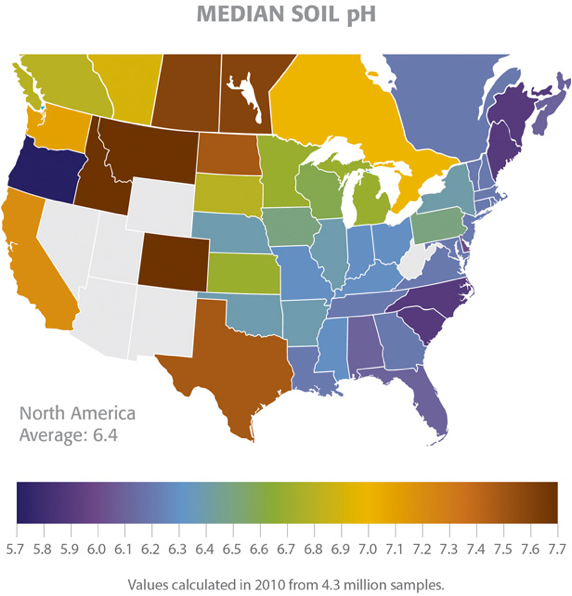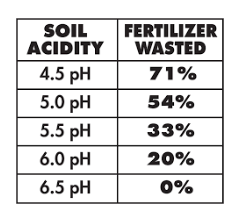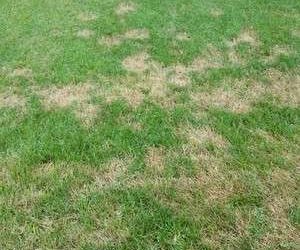Want a greener, healthier lawn? Common wisdom would have us believe the answer is to fertilize – generally in the spring and fall. Is it enough? Do you even need to fertilize? Which nutrients does your lawn need? All good questions, but the first question is, what is your soil’s pH and why does it matter?
First, what is soil pH? Soil pH is the measure of acidity or alkalinity in any given area of soil. The pH scale commonly in use ranges from 0 to 14. The higher the number, the higher the alkalinity. The lower the number, the higher the acidity. Generally, soils in Northern Virginia and Eastern West Virginia tend to be acidic.
The ideal reading is 6.5, indicating a balanced soil pH. Why? Because soil pH determines the availability of nutrients to plants. Nutrients must be soluble in order to be available, and pH level has a direct effect on solubility. There may be an abundance of nutrients in the soil, but if the soil pH is not balanced, plants can’t access those nutrients. Hence, adding more nutrients (i.e., fertilizer) to a lawn with unbalanced pH is simply throwing time and money away.
Strongly acidic soils (pH less than or equal to 5.5) can lead to deficiencies in calcium, magnesium, or phosphorus and increase availability of aluminum and manganese in amounts that can be toxic to turfgrasses (while helping many weeds thrive!) Soils become acidic through both natural and human actions. The biggest natural factor is rainfall. Other factors include root growth and the decay of organic matter by soil microorganisms. Human factors include fertilizing with ammonium-containing
Liming improves plant nutrient availability and reduces toxicity problems in acidic soils. But if you lime without first testing the soil pH, you can do more harm than good by putting either too much or too little lime on your lawn. It’s a delicate balance, and soil pH is not a fixed number. DON’T guess at your soil’s pH level! And stop throwing away your money applying fertilizer without knowing your soil pH. Think of a soil pH test as getting your bloodwork done. You wouldn’t act to lower your cholesterol if you don’t need to, but maybe you need to increase your B12 intake. How do you know without testing? Same with your soil. The experts at Virginia Tech offer more detailed information here: https://www.soiltest.vt.edu/report-notes.html
Want to have the experts handle the testing and act upon the results? Give the Pros at ProLawn a call today at 540-662-8316 to get started.





